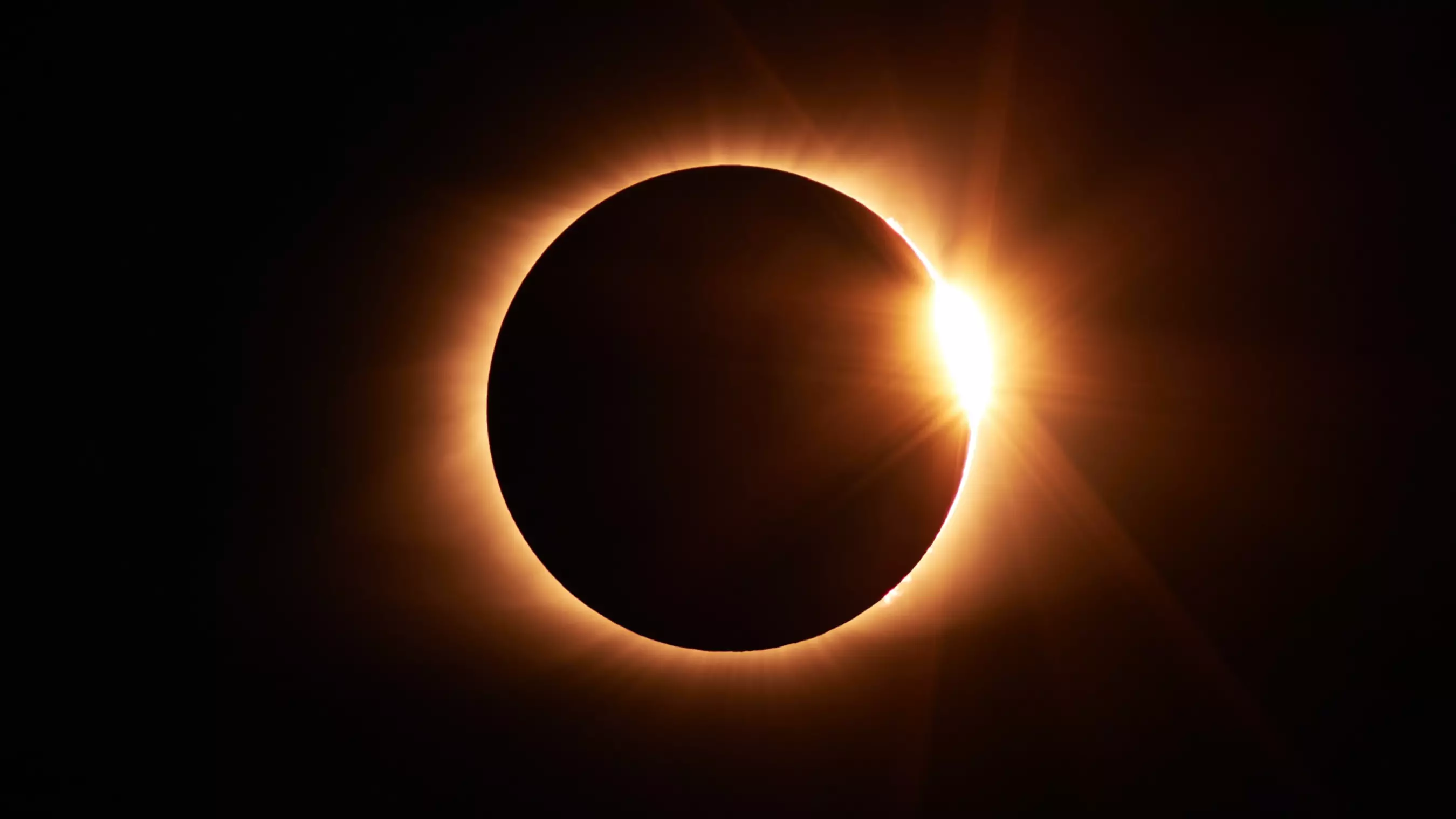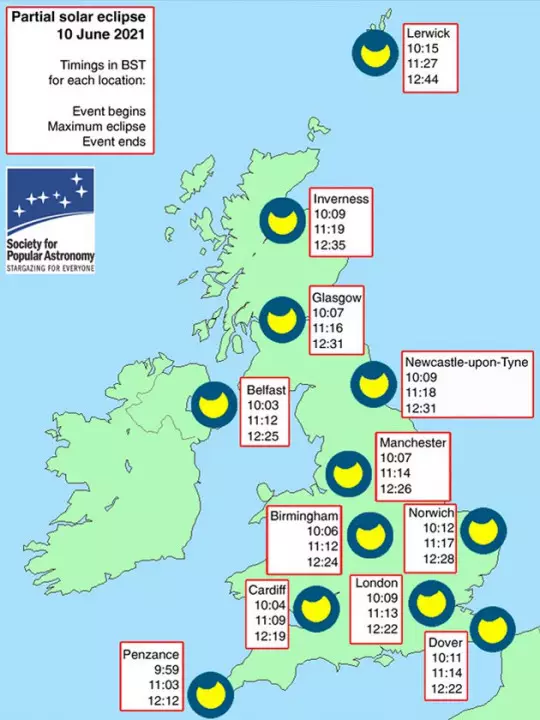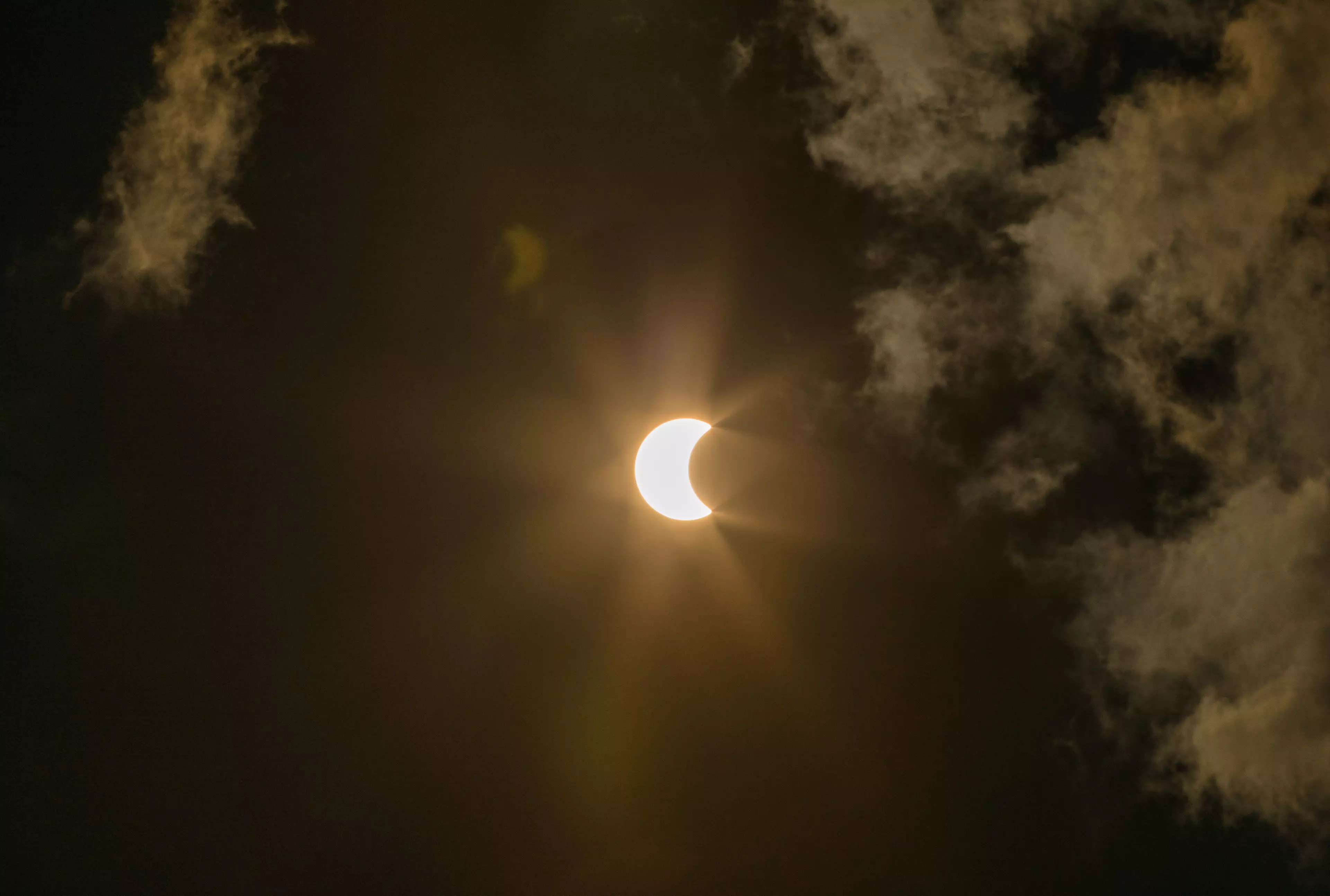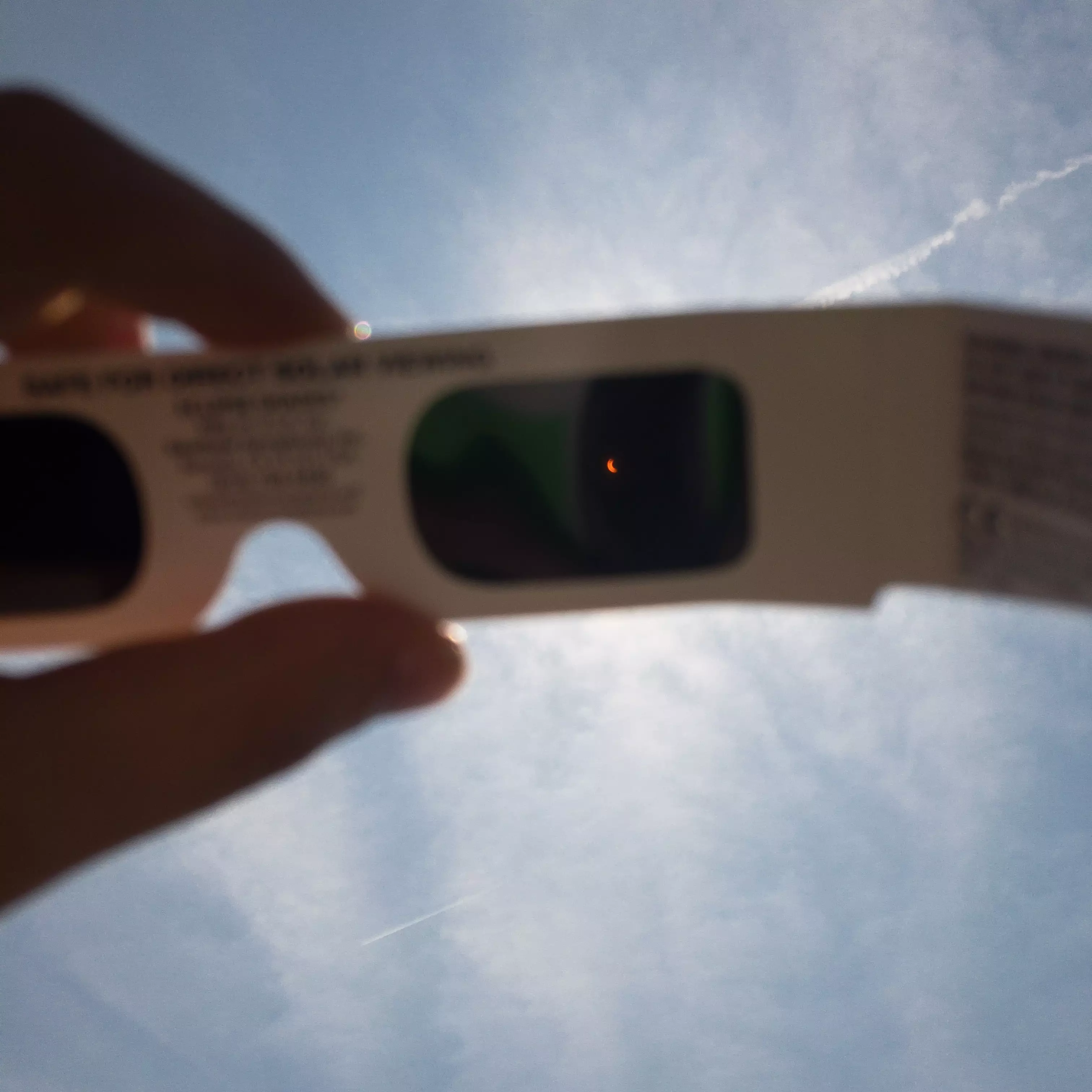
As the moon passes in front of the sun today (10 June), it's set to create a 'ring of fire' solar eclipse - and the good news is that you should be able to see it in the UK.
Nearly a third of the sun being blocked out by the moon in what is known as an annular eclipse, which occurs when the sun and moon are exactly in line with the Earth, but the apparent size of the moon is smaller than that of the sun.
In turn, this causes the sun to appear as a very bright ring - also known as 'annulus' - with the phenomenon also known as the 'ring of fire'.
Advert
In the UK and Ireland, however, observers will see a crescent sun instead of a ring, as this will be a partial eclipse.
If you fancy checking it out for yourself, the partial solar eclipse will begin at 10.08am in the UK, with the maximum eclipse (when the moon covers close to one-third of the sun) occurring at 11.13am.
It will then end at 12.22pm.

Solar eclipse UK time today
The solar eclipse occurs at 10.07 BST on Thursday 10th June.
Advert
It will be the most visible at 11.14am, and concludes at 12.26pm.
According to the Society for Popular Astronomy, here are the starting times for the partial solar eclipse across the UK:
Lerwick: 10.15am
Inverness: 10.09am
Glasgow: 10.07am
Newcastle-Upon-Tyne: 10.09am
Belfast: 10.03am
Manchester: 10.07am
Birmingham: 10.06am
Norwich: 10.12am
London: 10.09am
Cardiff: 10.04am
Dover: 10.11am
Is it a total eclipse?
This will be a partial solar eclipse, which means when the moon passes between the sun and earth, it won't be at its closest point to earth (lunar perigee).
Advert
This means the darkening of the skies will be less obvious.

UK weather forecast for solar eclipse
It's not going to be the clearest day for viewing the solar eclipse.
Advert
The Met Office said it'll be 'mostly cloudy in west with best sunshine in east'.
It continued: "Cloudy start for many. Brightening up for most with warm sunny spells but the odd shower possible. Staying cloudy for some western parts with some light rain in far west."
How to see the solar eclipse safely
Despite the popular belief that the skies go dark completely black during an eclipse, you should never look directly at it.
Advert
Even when the sun is partially covered, it can still damage your eyes - and your camera for that matter.
Dr Emily Drabek-Maunder, an astronomer at the Royal Observatory Greenwich, said: "The eclipse from the UK will only be visible with certain techniques and optical aids.
"Never look at the Sun directly or use standard sunglasses, it can cause serious harm to your eyes.
"It is also unwise to look at the sun through binoculars, telescopes or a telephoto lens on an SLR camera."
Instead, Drabek-Maunder recommends using a pinhole projector, solar eclipse viewing glasses, or special solar filters that fit onto telescopes.
Make a pinhole box
Here's how to view the solar eclipse safely by making a pinhole box:
- Poke a small hole in a cardboard box and attach a piece of white paper in the side opposite the hole.
- Put your head inside it, facing the white paper and point the hole towards the sun (so your back will be facing the sun).
- Keep adjusting your position until you can see a projection of the moon's shadow on the white paper.
Make a pinhole camera to view the solar eclipse
Alternatively, you could grab a colander from your kitchen and use that to view the eclipse. You don't place this on your head like you do the cardboard box. Instead, you hold the colander over a white piece of paper on the ground, and what you will see is pretty cool: each hole in the colander's shadow will be shaped like the crescent moon on the piece of paper. This is what's known as a makeshift pinhole camera.
If you're feeling really extra, you can even use special solar eclipse glasses, which will protect your eyes when looking up at the eclipse.

When was the last total eclipse of the sun in the UK?
The last time we saw a total eclipse in UK skies was on 11 August 1999.
However you decide to view today's solar eclipse, do it safely and enjoy!
Featured Image Credit: PA